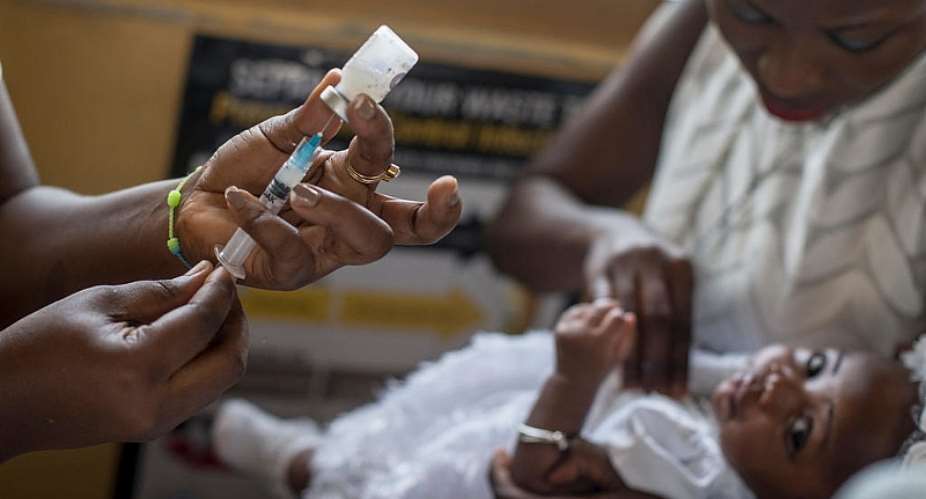Global leaders have marked World Malaria Day on Saturday 25 April amid fears that focus on the coronavirus pandemic could roll back progress on the mosquito-borne disease, notably in Africa.
This year, the fight against malaria is one of keeping it high on the political agenda, with experts warning that efforts to contain Covid-19 could shift attention away from malaria control and fuel another fatal outbreak.
There appear to have been signs of this in Zimbabwe, where malaria so far has claimed the lives of at least 152 people. It is a reminder of the threat still posed by the mosquito-borne disease, which kills one child every two minutes.
Authorities in Harare on Friday said that malaria cases had surged by nearly 50 percent, while only 29 coronavirus cases and four deaths have been reported so far.
In Kenya, President Uluru Kenyatta urged world leaders not to lose track of the collective war against other diseases that can take a deadlier toll.
"The World Malaria Day gives us an opportunity to reflect on the progress we have made in the fight against malaria, even as we continue implementing interventions to end the disease in Africa by the year 2030," he said in an address to the nation on Saturday.
Big killer
Malaria remains the biggest killer in Sub-Saharan Africa, accounting for 93 percent of global cases, according to non-profit group Africa Check.
A new report published by the World Health Organization predicts that malaria deaths on the continent may jump from a projected 386,000 to 769,000 as campaigns to combat it are interrupted by the coronavirus.
"We must not turn back the clock," Dr Matshidiso Moeti, WHO Regional Director for Africa said as officials warned the fight against malaria could be set back by 20 years.
“We saw with the Ebola Virus Disease outbreak in West Africa that we lost more people to malaria than we lost to the Ebola outbreak. Let us not repeat that with Covid-19,” Moeti added.
The two diseases have similar symptoms including fever, chills, headache and joint pains, raising concerns that some malaria cases may go unrecognised.
Marshalling donor support
"Those most in need of help are refusing to go to health clinics out of fear or because they can't due to the lockdowns in place," Dr Corine Karema, a member of the African Leaders Malaria Alliance told RFI.
While Covid-19 has become a global pandemic, now estimated to have killed nearly 200,000 people, the World Health Organization has called for malaria control efforts to be doubled.
It wants more research and development, stronger political leadership and funding, more cross-border co-operation, and more policies targeted to local conditions.
Finding the money may be difficult. Donors pledged only half of the recommended $5 billion per year for malaria programmes in 2018, well before the coronavirus outbreak. Now with the squeeze on government budgets, more reductions are likely to follow.
Ironically, while coronavirus is overshadowing malaria, the longstanding malaria treatment chloroquine has been touted as a potential vaccine for the pneumonia-like disease, although most specialists are sceptical.
There are fears too that a chloroquine vaccine for Covid-19 could lead to shortages for malaria patients.





 Whoever participated in the plunder of the state must be held accountable – Jane...
Whoever participated in the plunder of the state must be held accountable – Jane...
 A vote for John and Jane is a vote to pull Ghana from the precipice of destructi...
A vote for John and Jane is a vote to pull Ghana from the precipice of destructi...
 I’ll repay your abiding confidence with loyalty, understanding and a devotion to...
I’ll repay your abiding confidence with loyalty, understanding and a devotion to...
 ‘I’ve learnt deeply useful lessons for the future' — Serwaa Amihere breaks silen...
‘I’ve learnt deeply useful lessons for the future' — Serwaa Amihere breaks silen...
 I’m sorry for the embarrassment – Serwaa Amihere apologises for leaked sex video
I’m sorry for the embarrassment – Serwaa Amihere apologises for leaked sex video
 Dumsor: Matthew Opoku Prempeh not in charge of Energy sector – Minority
Dumsor: Matthew Opoku Prempeh not in charge of Energy sector – Minority
 Adu Boahen’s murder: Police arrest house help who was in possession of deceased’...
Adu Boahen’s murder: Police arrest house help who was in possession of deceased’...
 Akufo-Addo nominates Felicia Attipoe as Tema West MCE
Akufo-Addo nominates Felicia Attipoe as Tema West MCE
 Election 2024: I can't have someone I defeated twice as my successor – Akufo-Add...
Election 2024: I can't have someone I defeated twice as my successor – Akufo-Add...
